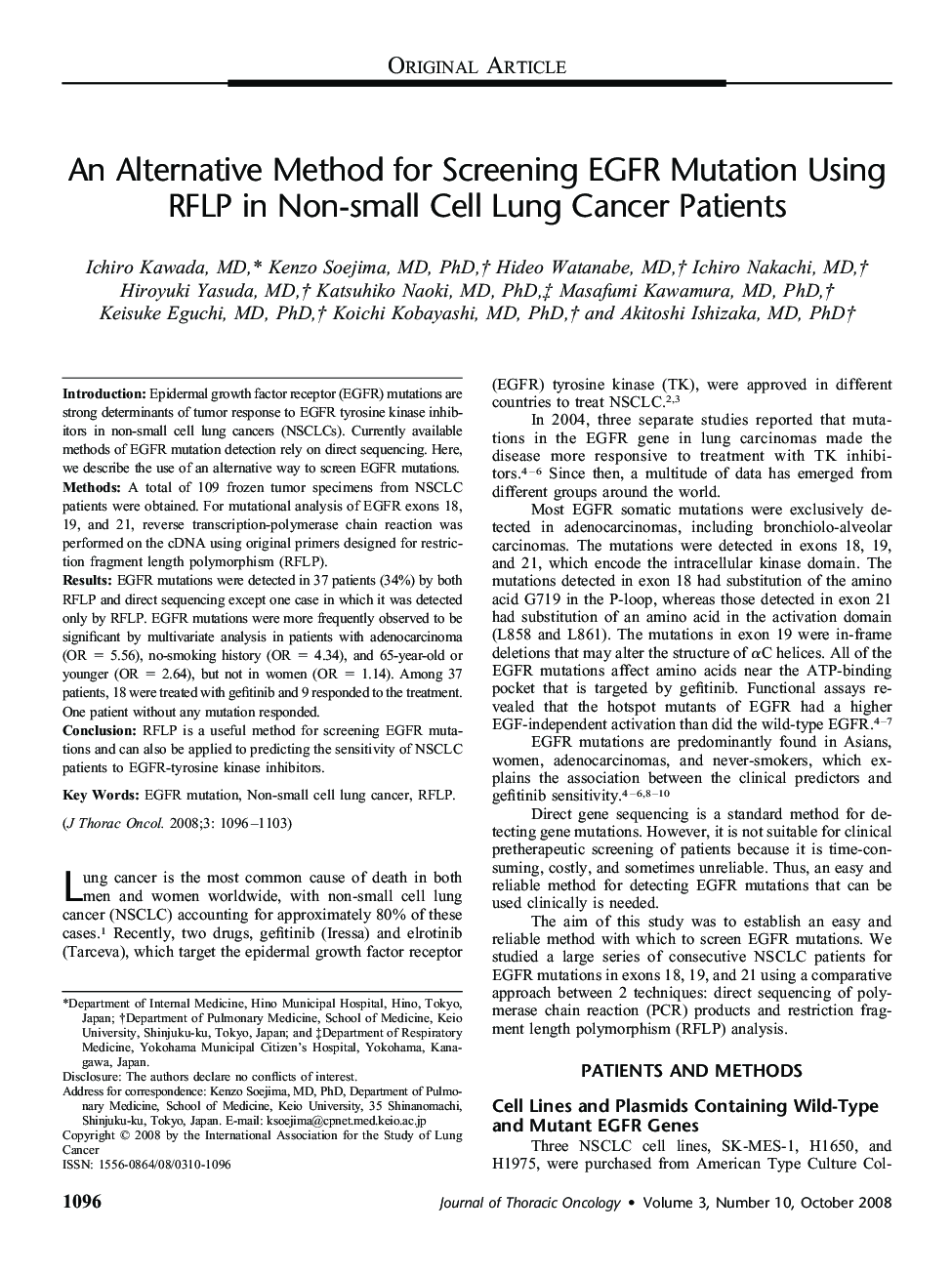| Article ID | Journal | Published Year | Pages | File Type |
|---|---|---|---|---|
| 3991693 | Journal of Thoracic Oncology | 2008 | 8 Pages |
IntroductionEpidermal growth factor receptor (EGFR) mutations are strong determinants of tumor response to EGFR tyrosine kinase inhibitors in non-small cell lung cancers (NSCLCs). Currently available methods of EGFR mutation detection rely on direct sequencing. Here, we describe the use of an alternative way to screen EGFR mutations.MethodsA total of 109 frozen tumor specimens from NSCLC patients were obtained. For mutational analysis of EGFR exons 18, 19, and 21, reverse transcription-polymerase chain reaction was performed on the cDNA using original primers designed for restriction fragment length polymorphism (RFLP).ResultsEGFR mutations were detected in 37 patients (34%) by both RFLP and direct sequencing except one case in which it was detected only by RFLP. EGFR mutations were more frequently observed to be significant by multivariate analysis in patients with adenocarcinoma (OR = 5.56), no-smoking history (OR = 4.34), and 65-year-old or younger (OR = 2.64), but not in women (OR = 1.14). Among 37 patients, 18 were treated with gefitinib and 9 responded to the treatment. One patient without any mutation responded.ConclusionRFLP is a useful method for screening EGFR mutations and can also be applied to predicting the sensitivity of NSCLC patients to EGFR-tyrosine kinase inhibitors.
